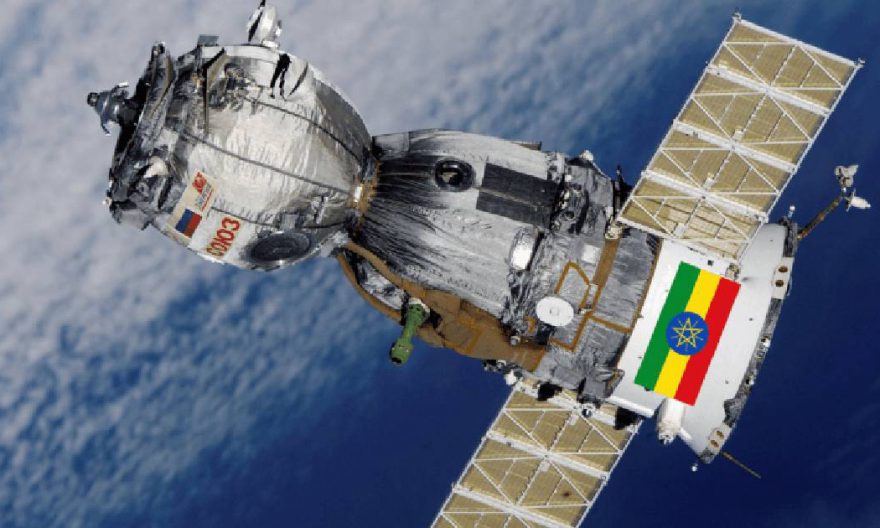
The Ethiopian Space Science and Technology Institute (ESSTI) has launched a 7.3 metres multi-satellite tracking and data receiving ground station at the Entoto Observatory and research Centre located in Addis Ababa. The satellite will receive data from five different Earth Observation (EO) satellites useful for various thematic applications, praised by Space Science in Africa.
The data receiving ground station will receive high-quality data with resolution up to 0.5 meters from the China-Brazil Earth Resources Satellite 4 (CBERS-4), China’s High-definition EO Gaofen 1, Gaofen 3 and Gaofen 5 remote sensing satellites, and the SuperView-1 operated by Beijing Space View Technology.
The ground data receiving station will provide revenue for the country by selling data to neighboring countries. Information from the ground station is beneficial to agricultural practices, water resource monitoring, disaster and early monitoring assessment, etc.”
Earth observation data provides valuable information about the nature, evolution and drivers of economic development, according to the World Bank blog on innovations in satellite measurement.
To receive data from land surveys from China, Brazil, the United Kingdom, and the European Union, an exchange of information has also been reached, the Ethiopian State Minister for Innovation and Technology Ahmedin Mohammed (PhD) noted during inauguration.
Building opportunities to increase Ethiopia’s capacity in the space sector by meeting the type and quantity of information he said adding that “Ethiopia is working on a digital strategy to build a digital economy. The center will be able to generate agricultural value and support tourism with technology. It will create great potential for implementation, he said.
Director General of the Ethiopian Space Science Technology Institute, Abdissa Yilma, for his part stated the station was built with the aim of providing enough space science data for Ethiopia and to exchange information from other countries.
The site has great potential to meet the information needs of Ethiopia and neighboring countries and increase foreign exchange earnings, he explained. The Satellite data is great impetus for agriculture, natural disasters forecasting, and natural resources. They are of great benefit to conservation and exploration. The center has an ability to receive data from meteorological satellites in the future and to receive data from more than 5 satellites.
The African Space forum stated that remarkable developments occur every day in the Africa continent in terms of science and technology.
“Our domain focus enables us to offer our clients cutting-edge expertise and data from the African space industry, with research-based business and market analysis predict critical outcomes in what happens next in the industry and the opportunities available. It is time for a commercial space ecosystem in Africa and shape the ecosystem by making available accurate information critical for the change.”
Using satellites to track changes in water, land, construction and vegetation can transform economies – and could unlock more than $2 billion a year of benefits for Africa alone. This earth observation could be one of Africa’s most valuable assets, helping to tackle water scarcity, food security, coastal erosion and deforestation, according to a new Forum report.
The report, “Unlocking the potential of Earth Observation to address Africa’s critical challenges“, quantifies the potential impact of Digital Earth Africa, a project launched in 2019 to make global satellite imagery more accessible.
And it’s particularly useful for developing countries, according to a World Bank blog, since satellites can map physical, economic and social changes where reliable socio-economic and demographic data may not be consistently available.
By providing ready-to-use data for decision-makers in government and business, the programme could boost Africa’s earth observation industry by $500 million by 2024 while providing $900 million in annual gains in agricultural productivity. This includes water savings, improved crop yields, insurance benefits and reduced pesticide use.
Another $900 million could be saved through better regulation of gold mining – particularly by reducing environmental damage and tax evasion from illegal mining.
The COVID-19 crisis evolves, ensuring earth observation data is widely available to help Africa monitor changes in people and the environment, while building resilience.
There are also “new opportunities for industry profitability and productivity in many sectors, such as land planning, agriculture and mineral exploration,” the Forum says.
Examples in the report include a trial in Salinas, California, where NASA has demonstrated that satellite images can reduce water used to grow lettuce and broccoli crops by up to 33 per cent, relative to standard practice.
Digital Earth Africa uses openly accessible and freely available satellite observations to produce its “decision-ready” products.
To help bridge key social and economic inequalities, the Forum has called for more geospatial data to be integrated into business models and political decision-making. It is calling on governments, industry and entrepreneurs across Africa to drive this change.
The increasing availability of satellite data is one of the “fundamental forces” shaping economic development, according to the World Bank, which provides financial and technical support to developing countries.
One of its projects involves using satellite data to help developing countries make progress on the 17 United Nations Sustainable Development Goals. These include ending poverty and hunger and combatting climate change in the run up to 2030.
Satellite tools and measurements have led to innovations in areas such as predicting crop yields in small-holder farms in Uganda, measuring the impacts of transport projects in South Asia and India, access to electricity in rural areas, and mapping land cover and land use dynamics in Vietnam.
BY HAFTU GEBREZGABIHER
The Ethiopian Herald May 19/2021




